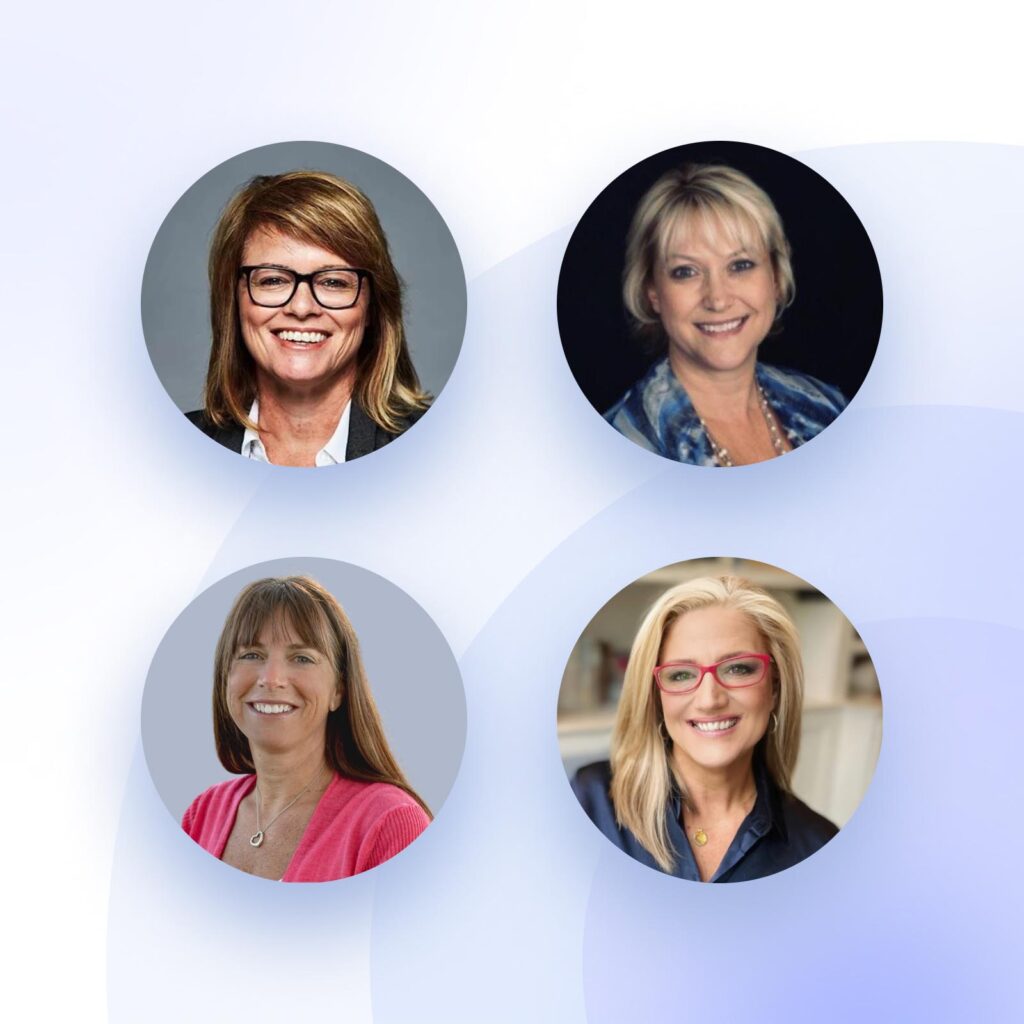Women of Warranty
The demographics of our industry are shifting, with more women and young people taking on roles. Angie Breedlove has formed a new group, Women of Warranty, to encourage and foster gender parity in warranty, especially in management and executive positions. The group will emphasize mentorship and networking.
The warranty and service contract industry, while small in comparison to the larger manufacturing and technology industries with which many of our jobs intersect, has undoubtedly been growing and changing in recent years. Workplace demographics are evolving, and more companies than ever before are emphasizing diversity and equity in their workforce. As conferences are coming back after years of pandemic, many are noticing more young people and women than ever before. And as the technological aspect of the industry grows, new interest in warranty does as well.
Angie Breedlove, Co-Founder and Chief Revenue Officer of the Xcelerator Group, has spent 36 years in the warranty and service contract industry. Over the course of her career, she has watched and participated in this transformation, overcoming gender-based barriers along the way. As she has moved up in the industry, she has become passionate about increasing the representation of women and young people, who she feels are the future of warranty. Last month, she formed the group Women of Warranty, and facilitated its first meeting at the United Appliance Servicers Association’s Annual Service Training Institute (ASTI) conference in San Antonio, Texas. Her vision for this group is to create “A community of women coming together as leaders, influencers, and supporters, in a career we love, mobilizing our collective power to create a diverse mix of voices and ideas.”
While women’s representation in the workplace has expanded in the United States overall, Breedlove notes that “the revolution – or, I guess, evolution – of this industry has been really small for women,” even compared to other male-dominated fields. It is difficult to measure the proportion of women in specific industries comprehensively, and there is no specific gender data about the warranty industry. According to the 2022 Grant Thornton Women in Business report, the global proportion of women in senior management roles has risen to 32%, from 21% just a decade ago.
Part of this slower growth, of course, is simply because warranty is a smaller industry, and one with which most recent college graduates and newcomers to the working world are not familiar. Breedlove emphasized that gender disparity is larger at management and executive levels. For much of her career, she said, “I was the only woman in a management position [at her company]. So I’m passionate about this.” Many of the women we spoke to for this article had similar experiences with being the only woman in the room.
We spoke to three other high-ranking women in the warranty industry: Lisa Dungan, Vice President of Customer Success, and Michelle Leblond, Executive Vice President of Compliance and Operations, both at PlusOne Solutions, Inc., and Dawn Taylor, Chief Revenue Officer at After, Inc., who told us about their experience, changes they’ve noticed, and the future of the warranty industry.
A Career in Warranty
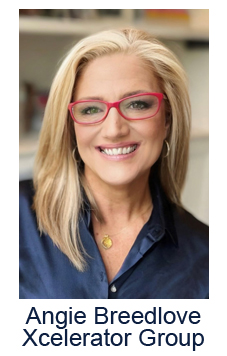
Angie Breedlove has been in the warranty and service contract industry for 36 years, and worked her way up despite the obstacles she faced as a young woman and a single mother. She attributes much of her early success in the industry to her mentor, Dale Reader, who hired her in the warranty claims department of Maytag. She is being humble. Breedlove’s determination, interest, and adaptability are just a few of the attributes that have been great advantages to her throughout her career.
After she gained a bit of experience in warranties at Maytag, Breedlove started to wonder what a career path in the industry would look like. She says that Dale Reader gave her this advice: “If I were you and just starting out, I would pick every department in warranty, because there’s so many, and I would do every job that is in a warranty company.” She says, “That’s what I did. I moved jobs every two years. I’ve done everything. I’ve paid claims, I’ve run call centers, sold parts, written service manuals and parts catalogues, I’ve gone to conferences. I had all the retail accounts by the end” of her time at Maytag. Overall, she says, “It was great advice.” Nodding to Sheryl Sandberg, another pioneer of women in business, Breedlove said, “A career is not a ladder; it’s more like a jungle gym. Sometimes you have to go sideways to go up.”
Breedlove was at a unique advantage, with expertise in such a wide range of operations related to warranties. In all, she spent about 20 years at Maytag. In 2006, she “was recruited by Lowe’s Home Improvement to build an in-house warranty service administration division. They didn’t have anything like that. They outsourced everything. They didn’t have a call center, they had nothing. So they recruited me and a gentleman named Ed Cahill. So I went, and Ed went, and we built an entire service administration, a 600 seat call center, in less than two years, with everything that went with it. And now Lowe’s has the largest service contract portfolio in the entire United States.”
After about 13 years with Lowe’s, Breedlove became a Vice President at Assurant. She told me, “I wanted to try service contract companies” and further explore “the insurance side of warranties.” At the beginning of this year, she became a C-level executive, co-founding and serving as CRO for the Xcelerator Group with three other partners. She stated, “Xcelerator Group is a consulting and software development company. We specialize in two spaces: one is the warranty and service administration space, and the other is transportation.” In many ways, starting a company is the culmination of Breedlove’s breadth of experience.
The reason we are highlighting Breedlove’s career history is because it contradicts many of the statistics and tendencies we hear about women in corporate space. Breedlove’s boldness and willingness to defy norms have contributed to her success. She said, “I am not self-conscious. I am not shy. I am not afraid.” These qualities have clearly gotten her very far, as has her positive attitude despite gender- and age-based discrimination she faced during her early career.
Breedlove’s career path offers several key lessons to women, especially young women who are just getting started in the industry. Breedlove herself is very willing to mentor young minds. She said, “I got the idea of bringing in younger people. You can’t train attitude, but I can teach them the warranty business.” She expressed excitement at the attitude she has noticed amongst younger workers, noting she has seen them be more curious about learning the industry, and willing to accept more change. Her key piece of advice is, “Be willing to move. Be willing to take that project that no one else wants.” She moved homes three times in her life to take on new, bigger roles, and this really helped advance her career. She also emphasized the importance of changing jobs within the company, though the biggest pay raises are almost always from company to company.
Furthermore, Breedlove offered the advice that women should be confident, putting their names in for jobs even if they don’t meet every single requirement. She noted, “Let’s say a job is posted, and there’s 15 requirements. If a women sees those job requirements, and maybe she only has 12, she will not put her name in for the job. If there’s 15 requirements and a man maybe only has five, he will still put his name in for the job.” Overall, she wants to encourage women in the industry to be bold, to self-advocate, and to be agents for their own success. Be confident in your ability to learn, grow, and adapt. And she wants to help mentor women and teach them these skills, amongst others.
Women of Warranty
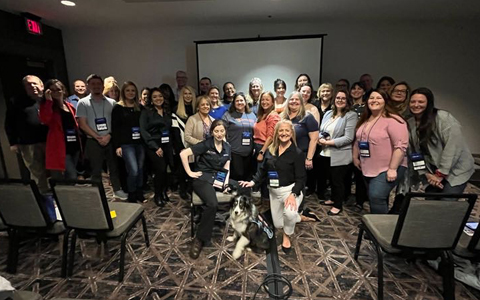
Women of Warranty’s first meeting, including, yes, men too.
Angie Breedlove formed Women of Warranty simply because, she says, “I’ve always wanted to do it. Thinking about all of the diversity and inclusion work [warranty] companies are doing today, there are a lot of affinity groups, and there were never any for women. I always wanted to work somehow, in some way, to help women’s leadership, entrepreneurship, and networking.” Her vision for the group is to create “A community of women coming together from different areas of warranty. Leaders, business owners, influencers, and supporters. We want women of color, we want men, we want members of the LGBTQ+ community. I want women to hear from the leaders in the warranty industry, the influencers that we can learn from. So when you look at the warranty industry, an influencer on the industry can be manufacturing. It can be a parts distributor, other labor aggregators. So, competition. Bringing all those voices in for the common cause of developing more female leaders.”
The goal, in the end, is that women become “a larger percentage of people at the table,” especially in management and executive roles. She notes, “In warranty, women do a majority of the jobs in the company. They pay the claims, the answer the phone, they order the parts, but they’re not in charge of the warranty departments. Only around 25% of women are in leadership positions or own a business.”
The first in-person meeting of Women of Warranty at the ASTI conference was attended by a little over 30 people. At this meeting, they discussed Breedlove’s vision and intentions for the group, as well as her goals for the Women of Warranty website сurrently in development. Then she opened it up to feedback from attendees about what they would want from a women’s affinity group in their industry.
Some of the main things the attendees mentioned were marketing their services, managing mailing lists, networking, and negotiation, especially salary negotiation. Breedlove notes that negotiation is one area where gender and age disparities tend to manifest. Commenting on this, she said, “I’ve never had anyone internally negotiate me up on a job offer who was above 30 years old. And it didn’t matter if they were male or female.” Men above age 30 “tended to negotiate for more benefits,” such as the company paying for moving costs. “They tended to be negotiating in that space, and women did not.”
This anecdotal evidence is backed up by hard data. Several studies show that women lose up to $500,000 over the course of their careers by not negotiating on their starting salaries. Of course, this is complicated for women to navigate, especially due to differing perceptions of men and women in the workforce. If a women self-advocates, she is labeled as aggressive, perhaps even called the dreaded “B” word. On the other hand, men who are aggressive in the workplace are often rewarded for their ambition. Women can be penalized for speaking, even when they have the expertise. In her book Learning to Lose: Sexism and Education, Dr. Dale Spender noted that in a classroom discussion setting, women were fairly accurate in evaluating the gender distribution of speakers, but men were not. When women spoke only 15% of the time, the men perceived the discussion as being equal between the genders, and when women spoke 30% of the time, the men perceived the conversation as woman-dominated.
Changing Demographics
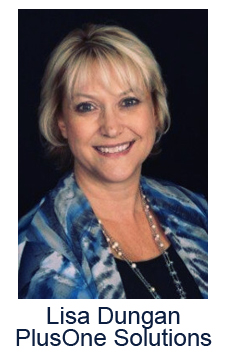
Despite these challenges, the formation of Women in Warranty is not a push back against gender discrimination in warranty, but rather an affirmation of the changing demographics in the industry. For Lisa Dungan, Vice President of Customer Success at PlusOne Solutions, Inc., these changes were visible at this year’s ASTI conference. Dungan attended this conference in 2018 and 2019, when she was still getting to know the warranty industry, coming from a background in security and investigations. PlusOne is at the intersection of these two fields, conducting background checks on warranty servicers to ensure they are authorized to enter consumers’ homes. She stated that, “Within the industry itself, it’s male-dominated from a background screening perspective, but then in the world of warranty, it’s very similar to what I had seen from an investigations perspective.”
When Dungan returned this year, she said, “What a difference.” She noticed several changes. “First of all, they even had a session for women in the industry. That was really exciting. And it wasn’t just women, there were plenty of male counterparts that were there to show their support.” There was a diversity in the attendees of the Women of Warranty meeting, from “service providers, mom and pops, to franchises, to software companies like ServiceBench, to companies like us, service companies that complement the process.” Overall, she stated, “there was definitely more of an inclusion feeling” at this year’s conference.
“Usually, there are events about the industry, but there isn’t necessarily anything specific about how the demographic is changing. It was also very evident during that event that the average age of the servicers is changing, which is something else that I definitely noticed.” She stated that with so many people retiring during the COVID years, there are more opportunities for women, especially young people, to enter the warranty industry. She hopes that this will translate to more women at the executive level, and perhaps, a few decades from now, more women will be receiving lifetime achievement awards at conferences like this. “My hope is that, in the next few years, there will be more women that can say, ‘I’ve been in the industry for 10 or 20 years.'”
Increasing Interest in the Warranty Industry
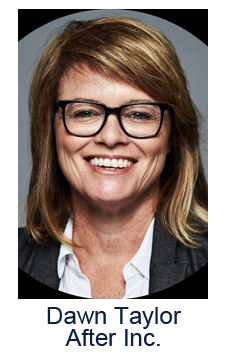
We spoke to Dawn Taylor, Chief Revenue Officer at After, Inc., for another perspective on being a woman in this industry. Taylor did not attend that ASTI conference, but had been approached by Breedlove to join Women of Warranty as another C-level woman in the industry. As we said, it’s a small industry. Prior to joining After, Taylor was President of Centricity. She stated that while she met many women who were account managers, when meeting with retailers, “it was almost always the case where I was the only woman. And I believe at the time I was promoted to President, there was only one other woman in the industry who was president of a company.” She said, “It’s been an interesting perspective. It’s been really great to see the attendee changes in conferences, where it used to, again, be mostly men, and I’m seeing more and more women, especially more and more women in leadership roles.”
Taylor went on to say, “More women and younger people are becoming interested in our industry. I think part of this is the rise of insurtech and how that has bled into what we’re doing. Many companies in warranty and service contract now are developing technology. We have a platform, a product registration, a plugin, big e-commerce marketplaces that enable online retailers to sell service contracts with just some configuration, versus weeks and weeks of IT integration. And there’s been an emergence of smaller companies as well, and startups, and it’s just embraced a different demographic altogether. I think you’re seeing more women go into finance and tech roles, and younger women who are making these choices. I could probably go back even just five years, and at a conference, sitting there, if there were 200 people in the room, maybe five percent of them were women. And now I feel like that’s trending upward. You’re going to see, 20% or 25% of the people in that room are women, and maybe at least half of those women are under the age of 35. Which is awesome to see.”
Taylor also emphasized the importance of networking, and noted that this is another area where the industry has seen great change in the past few years. With the rise of LinkedIn, we are able to grow our networks and keep in touch in a more passive way, perhaps opening ourselves to opportunity down the line. It’s easier to find job listings and recommendations. She also noted that the scope of the industry has grown, especially with the evolution of technology. The industry is becoming more popular and visible, especially amongst young people. “I think that the growth in the warranty space has helped spread the message to a more diverse population. It’s getting more exposure, where it really didn’t before,” she said.
Taylor also echoed a sentiment that Angie Breedlove expressed to me, that more young women are being promoted because they have bosses who are women. Simply seeing women at the executive level shows younger women that it is possible for them to have those kinds of roles. Breedlove said, “If you never see it yourself, how do you know you can do it?”
The Future of Women in Warranty
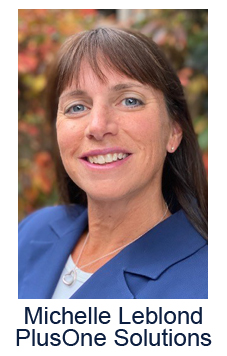
When I asked Taylor what she would want to see from a women’s affinity group in the warranty industry, she emphasized the importance of mentorship and “sharing experiences and knowledge.” She said, “Being able to just get together and talk about the challenges you’re facing in business, whether they’re related to being a woman, or just related to being in business.” She acknowledged, “It can be difficult, because in this instance, many of us will be working for competitors, and we might not be looking to solve our competitors’ problems,” but that it is important “to have a place where you can go and be able to discuss some of the obstacles or challenges you’re facing with people who are likely facing the same things in the same industry.”
Lisa Dungan echoed these sentiments. She stated, “I could really see the potential impact to the industry by bringing people to the table that had a lot of willingness to share and collaborate. Of course, there’s competition, so you have to be careful with that. But there was this openness; if it benefits us all, we all benefit.” While the women of warranty will not be divulging company secrets to each other, they certainly will be discussing common challenges, and exchanging potential solutions.
Michelle Leblond, Executive Vice President of Compliance and Operations at PlusOne Solutions, was in attendance at Women of Warranty’s first meeting along with Dungan, her coworker. Leblond said, “This was just the first meeting, but it set the stage for future connections, initiatives, and networking for many women who were in attendance. Understanding the importance of the work we do in our respective areas, and the absolute breadth of knowledge and experience we share, was a wake up call to the perspective we bring to the industry. As we move ahead, it will be good to see all those strong women share their experiences and information with each other.”
Leblond commended Angie Breedlove for the effort and enthusiasm she has put into the formation of Women of Warranty. Leblond said, “Angie is energetic, passionate, and embodies the focus women can deliver in this predominantly male industry. Her range of experience and perspective were mobilizing for many in attendance and demonstrated the range of roles that women hold in warranty work and the associated organizations.”
Looking to the future, Breedlove is thinking even beyond mentorship and networking. She said, “Part of this is going to be networking, but we also want to do local events, maybe virtual training meetings, maybe happy hours.”
I will disclose that I myself am a member of Women of Warranty. We are happy to announce that Eric Arnum has been promoted to publisher of Warranty Week, and I, Drew Arnum, am now the editor. I grew up explaining warranties to my friends, and now I have enjoyed reporting on warranties for Warranty Week since the beginning of this year. As a young woman at the beginning of her career in the warranty industry, I am excited to see what this group will bring, and how my demographic will help to shape the future of the industry.
Source: Warranty Week






